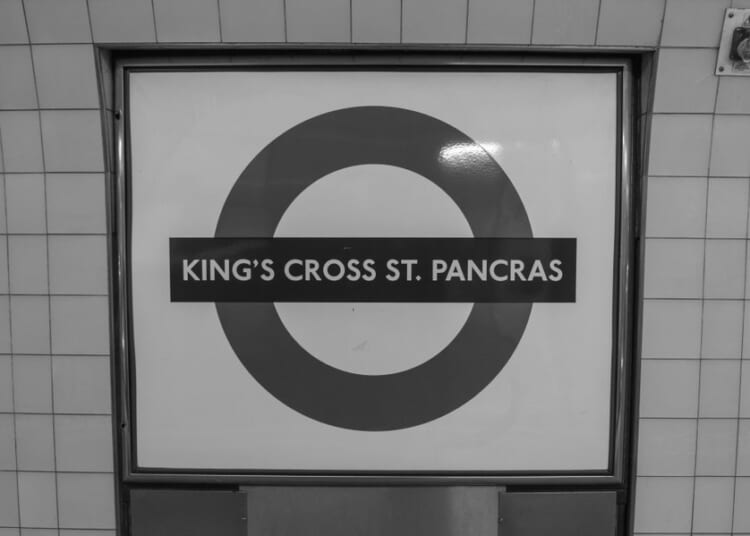THIS week travellers passing through King’s Cross, one of the largest train stations in the country, were treated to a display on the information board headed: ‘Hadith of the Day’. It read: ‘The Prophet Muhammad (PBUH) said: All the sons of Adam are sinners but the best of the sinners are those who repent often.’ You can see it here.
The official explanation is that, due to the station’s diverse and multicultural workforce, such messages are shown at times of religious significance, and this is the Muslim holy month of Ramadan.
You’d have thought rail companies would think that ridiculously high ticket prices and constantly delayed or cancelled trains were insults enough (almost every train on the board is, indeed, delayed) but now they feel the need to call a portion of their customers sinners to boot.
Hadith are the recorded sayings, actions or approvals of Muhammad, compared with the Quran which Muslims hold to be the literal word of God. Until recently hadith were not a common sight in Britain railway stations.
That’s because, ostensibly, we’re a Christian country. Nigel Farage claimed as much reacting to the hadith’s appearance. National Rail, too, said that, on occasion, Christian messages are displayed in railway stations, although its only evidence was that the phrase ‘have a flippin’ good pancake day’ had been displayed on Shrove Tuesday.
Nice try, but no cigar.
Few nowadays are believers in Christianity. Without the core of belief we are left with its residual influence, amounting to the detritus of its catchphrases. Christmas is about the presents under the tree and Easter about the chocolate eggs. Yet still, we, as a society, tend to turn the other cheek and retreat from confrontation under the banner of loving thy neighbour.
Many people hold such values, not knowing whence they spring. Without a background in even basic Christian teaching, they assume such beliefs to be human nature as opposed to what was once, albeit in the ancient world, a radical departure from accepted morality.
Most will claim to be secularists. Yet few will be overly vexed by the imposition of such overt, formerly foreign, religiosity in public. They may not like it, but to get overly agitated is another matter altogether: after all, people have a hundred and one other things to worry themselves with.
It’s certainly curious that whenever Muhammad is mentioned in the public square he is invariably the ‘Prophet Muhammad’, and the mandatory ‘PBUH’ (peace be upon him’) is suffixed. For a society which has so embraced atheism, it is a strange concession to make. When talking of Jesus, they are not bothered to add on ‘the son of God’. It is not the sign of a secular society, but one which concedes happily to the conventions of Islamic faith.
Most doing so would maintain that their doing so is born out of respect for the belief. Perhaps this is true to a certain degree: anything foreign is held in higher regard than the indigenous. Cultural self-loathing is a marker of high status of opinion, and Christianity is there to be derided.
Additionally, Muslims are among the only groups in the country who fervently insist on their worldview being not only tolerated but actively adopted by others. A society that believes in nothing has little defence in place. Many of those who pursued cultural relativism and the hollowing out of our civic landscape perhaps did not appreciate that a vacuum so created would inevitably be filled by an assertive belief system which precludes straightforward assimilation.
Add to this the omnipresent concern of violence after decades of sporadic Islamist terrorist attacks in Western Europe, and the ability for vapid Western societies to withstand the ideological demands of Islam approaches zero.
Opposing the religion’s spread is a high-cost pursuit in terms of reputation and, ultimately, one’s safety. Although effectively swept under the carpet by the media by his colleagues, the fate of Conservative MP Sir David Amess, stabbed to death at a constituency surgery by a Muslim extremist, weighs on the conscience of those very naturally inclined to self-preservation. This is not to mention Charlie Hebdo, the Manchester Arena, or various other barbaric events.
To talk of Islam’s rise in Europe is to land you in the category of people not suitable to be invited to dinner parties. Yet its significant growth in recent years has inevitable consequences, ranging from the question of halal food being served everywhere to the rise of effective blasphemy laws in the United Kingdom. For those who would pooh-pooh the latter, one need only look at Batley, West Yorkshire, where a teacher was hounded out of a job for showing pupils a cartoon of Muhammad, or, awfully, Samuel Paty in France, the teacher murdered for showing a similar drawing.
I dare say it is one the most urgent topics of conversation our civilisation is not having. Despite that high urgency, it will be brushed aside, so taken up as we are with frivolous trivialities.
If we fail to engage meaningfully in the topic, it is clear where we are headed. One of the recurring lessons of history is that it does not need a majority of a population radically to alter its direction. If three people in a room are of a firm conviction and seven are not, it’ll be the minority’s wishes which are implemented. Such a dynamic is also likely at play within Muslim populations, with moderates chastised by the more fervent, further precluding a calming of social relations.
Complacency and fear are dangerous bedfellows, yet they have driven the West’s recent half-hearted attempt at assimilating a vastly different culture into these lands. Those who do not have the courage to defend what their ancestors created through generations of toil and the spilling of blood – in this case, Western civilisation itself – do not, in the final analysis, deserve to reap its rewards.
This article appeared in Frederick’s Newsletter on March 21, 2024, and is republished by kind permission.

